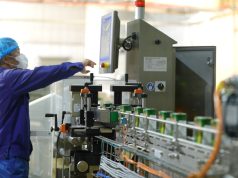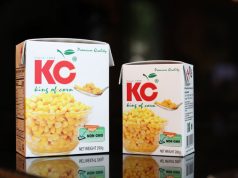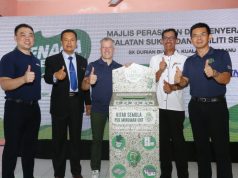By: John Jose
The plant-based food trend is rapidly gaining traction across Southeast Asia, fueled by increasing consumer awareness of health benefits and environmental concerns. This shift presents opportunities for whole bean soy production, which supports these trends by offering sustainable nutritious content and boost nutritional value. As demand for plant-based products continues to grow, manufacturers are seeking innovative approaches to meet consumer expectations while tackling production and sustainability challenges.
Navigating Market Challenges
Despite the rising popularity of plant-based solutions, producing high-quality whole bean soy beverages comes with its own set of hurdles. Maintaining consistency, ensuring product quality, and optimizing production efficiency remain key challenges for manufacturers. Advanced processing solutions are critical to overcoming these issues.
Companies like Tetra Pak offer end-to-end support to businesses in this dynamic sector, providing expertise in R&D, customized packaging solutions, and commercialization strategies. These solutions streamline production, minimize human error, and ensure transparency, enabling manufacturers to meet market demands sustainably and efficiently.
Transitioning to Circular Food Systems
To tackle sustainability challenges, the food and beverage industry is increasingly adopting a circular economy approach. This model emphasizes resource efficiency, waste reduction, and environmental responsibility, making it particularly relevant for countries like Malaysia, Singapore, and Indonesia, where high resource consumption and food waste are significant concerns.
Whole bean soy production embodies this circular concept by utilizing nearly 100% of the soybean, significantly reducing waste. Traditionally, soy processing methods often generate significant waste, particularly with okara (a fibrous by-product), which is typically discarded and leads to substantial food loss. This zero-waste solution not only reduces food waste and enhances nutritional value but also addresses industry challenges and supports broader environmental goals.
Success Stories in Southeast Asia
Vietnam offers a compelling example of the benefits of whole bean soy production.
Manufacturers in the country have been able to reduce water consumption by up to 20% and improve overall production efficiency by implementing the whole soya production method. Leveraging Tetra Pak’s end-to-end solutions, Vinamilk was able to reduce waste, optimized water and energy use, and create a more sustainable production cycle. In addition to reducing water and energy consumption, streamlining production with minimal human error, as well as ensuring full traceability of products from raw milk intake to distribution.
The success in Vietnam serves as a model for other Southeast Asian markets, showcasing how innovative processes can lead to lower carbon footprints and better environmental outcomes, enhance resource efficiency and promote a sustainable, circular economy in the region’s food production industry.
Adopting a circular approach to food production not only reduces environmental impact but also creates new economic opportunities. Whole bean soy production demonstrates this potential by addressing key sustainability challenges while meeting the growing demand for plant-based products. Whole bean soy production is an effective way to reduce waste and support a sustainable food economy. As the demand for plant-based and sustainable products rises, manufacturers can count on Tetra Pak as a valuable partner. By using cutting-edge processing technologies and sustainable practices, businesses can improve their product offerings, meet the increasing demand for eco-friendly solutions, and contribute to a greener, more efficient future.
By combining advanced processing technologies and sustainable practices, businesses can enhance their competitiveness, while contributing to a more sustainable future for the food and beverage industry in Southeast Asia.












